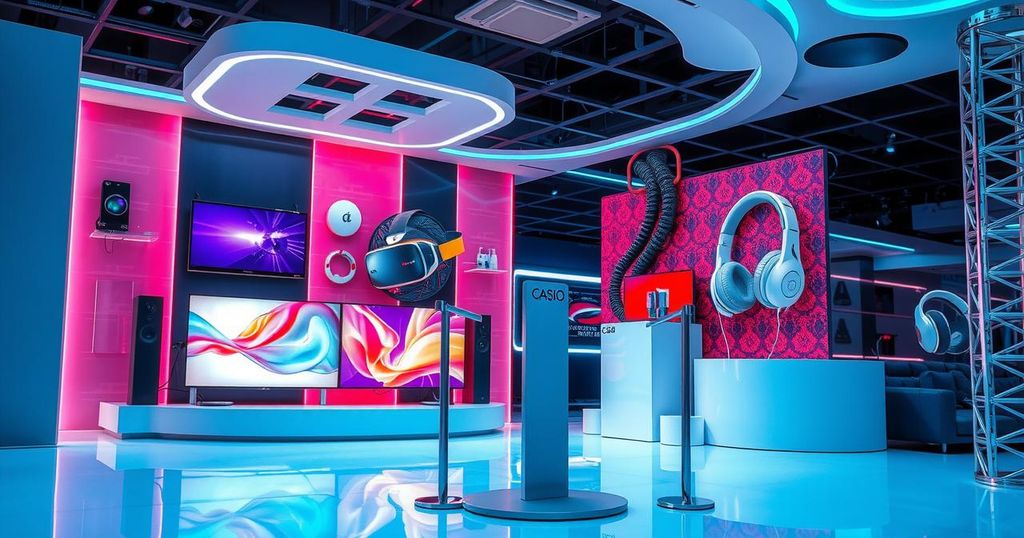Unveiling the Future: Top Tech Trends from CES 2025
CES 2025 spotlighted cutting-edge AI innovations, spearheaded by NVIDIA’s advancements in Agentic AI and next-gen GPUs. The show featured developments in humanoid robots, autonomous vehicles, and AI-integrated laptops, all indicating a future where AI seamlessly enhances productivity and operation across various industries.
The 2025 CES showcased groundbreaking AI products and consumer devices, significantly influenced by NVIDIA, a frontrunner in the AI field. Noteworthy trends in commercial products emphasized the rise of Agentic AI, which allows generative bots to manage tasks traditionally handled by humans, streamlining processes and improving efficiency. NVIDIA presented Blueprints for agentic AI, combining various microservices from AI partners like LangChain to automate complex tasks, greatly benefitting sectors such as inventory management and healthcare.
Next-generation GPUs took center stage, with NVIDIA leading the charge with its GeForce RTX 50-series and AMD unveiling the Radeon 9000 series. Intel and Qualcomm also showcased their latest offerings. The RTX 5090 GPU, underpinned by NVIDIA’s Blackwell architecture, promised significant advancements in graphics rendering, with projects like the $3,000 Project DIGITS aimed at enhancing generative AI model development.
NVIDIA’s CEO, Jensen Huang, expressed excitement about the potential of generative AI in making humanoid robots viable. Despite past commercial struggles, the unveiling of the Cosmos platform, built upon synthetic motion data, aims to revolutionize robots’ navigation capabilities by simulating real-world physics training. This could transform the landscape of robot assistance in everyday life.
Autonomous vehicles remained a major focal point, with NVIDIA boasting successes in their self-driving platform, which has met key safety standards. Partnerships with major companies like Toyota and Uber signify a push towards AI-powered driving solutions, urging that data-rich generative AI will pave the way for safe and scalable autonomous vehicles across the industry.
On the consumer front, CES revealed a plethora of innovative laptops eager to embrace AI. Dell introduced a new line of business-centric laptops, while Lenovo’s rollable ThinkBook Plus merges versatility with AI capabilities. Additionally, Asus unveiled its featherlight Zenbook A14 powered by Qualcomm’s AI technology, indicating a clear trend toward integrating AI into everyday computing for enhanced productivity and user experience.
In summary, CES 2025 highlighted significant advancements in AI technology, with trends focusing on Agentic AI, next-gen GPUs, humanoid robotics, autonomous vehicles, and innovative laptops. NVIDIA emerged as a key player, shaping many developments while demonstrating how AI can enhance efficiency in various sectors. As companies embrace these technologies, AI’s potential to transform everyday tasks and industries becomes increasingly apparent.
Original Source: www.techrepublic.com




Post Comment